o2
Latest

The £399 OnePlus 3T hits the UK on November 28th
OnePlus' motto is "never settle," but it's probably best not to remind OnePlus 3 owners of that right now. Less than six months has passed since the launch of that flagship, and yet the company has already announced a new model to replace it. The OnePlus 3T is basically an improved variant, with a Snapdragon 821 chip, bigger 3,400mAh battery and better 16-megapixel front-facing camera for high-quality livestreams. The primary shooter is now covered with sapphire glass to ward off scratches, too. The only other major change is the higher price, with the OnePlus 3T costing £399 for the 64GB model or £439 for the 128GB config when it launches in the UK on November 28th.

Sky Mobile will open signups on October 31st
It's taken more than two years, but Sky is finally ready to launch its own mobile service. At its annual Investor Day, the company confirmed it will open registrations for Sky Mobile, its O2-powered network, from October 31st. The move will ultimately allow Sky to sit alongside BT, Virgin Media and TalkTalk as a true "quad-play" provider.

OnePlus 3 gets its first UK carrier partnership in O2
Over the past few years, OnePlus has made a name for itself by releasing powerful flagship smartphones at lower-than-expected prices. The unlocked model lets people buy their devices outright, enabling them to get a better deal on a SIM-only contract. But as the company has moved away from its invite system and faced up to the battle of fulfilling every order as soon as possible, it's also begun to expand into retail. Today, OnePlus has announced its first ever partnership with a UK mobile operator. O2 is the company in question and will begin selling the OnePlus 3 from September 29th from £28 per month.

Tado's new thermostat listens to Siri and Alexa
Tado is no doubt celebrating today after its thermostat was selected above all others for O2's new subscription-based smart home offering. That's by no means the only Tado news from this year's IFA, though, as the company today announced its third-generation smart thermostat. Pretty much nothing has changed from a hardware standpoint, with the main improvements being support for both Apple's HomeKit and Amazon's Echo platforms, allowing you to control your heating by talking to Siri or Alexa, respectively. IFTTT integration remains part of the feature set, and the new generation is also said to have improved energy efficiency algorithms.

O2 wants to help you spread the cost of building a smart home
Although there are plenty of smart home solutions, deciding which platform to back can be hard. Do you invest in a product from a major brand like Google's Nest or choose a startup that cares more about its products and services than parting you from more of your money? It's a problem that UK companies like British Gas' Hive have tried to solve with its mix of smart appliances, but mobile carrier O2 thinks it might have the solution. The operator today launched O2 Home, a new smart home subscription service that lets customers spread the cost of devices but also the support they may require.
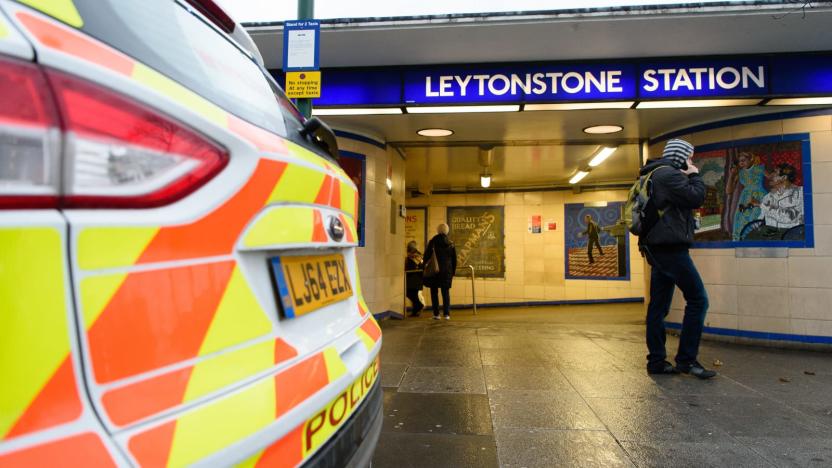
Android will now automatically send your location to 999 operators
When you call 999, operators need to know exactly where an emergency is before they can dispatch the required service. That information can be difficult to share if you're in unfamiliar surroundings but a new update coming to Android will take all of the guesswork out of locating where you are. It's called the Emergency Location Service and it uses available WiFi connections, GPS and mobile masts to pinpoint your location and share it with an operator while you're speaking with them.
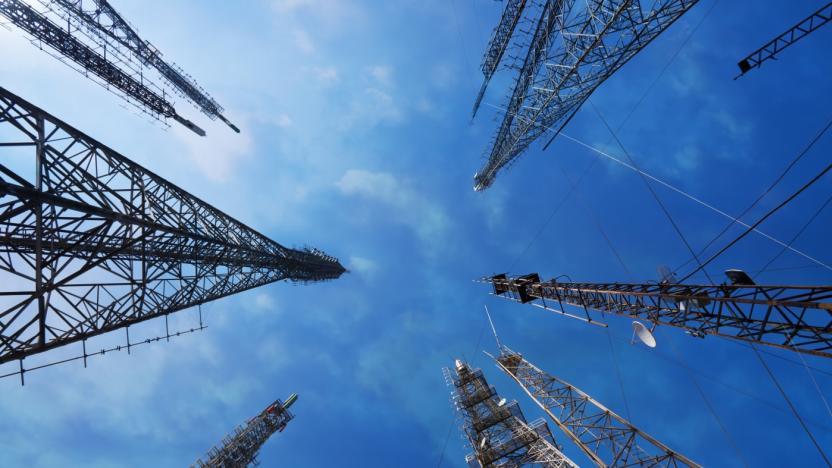
Three asks Ofcom to limit BT in next spectrum auction
Ofcom is expected to auction off fresh slices of mobile spectrum later this year, which carriers will use to improve speeds on their networks amid our ever-increasing demand for data. It'll be a significant event in the mobile world, with the spectrum on offer being the equivalent of roughly 75 percent of the capacity released in 2013 to pave the way for the launch of the UK's first 4G services. Ofcom hasn't set a formal date yet, but already Three's CEO David Dyson is calling on the regulator to protect his network's interests so it can remain competitive with its larger rivals.
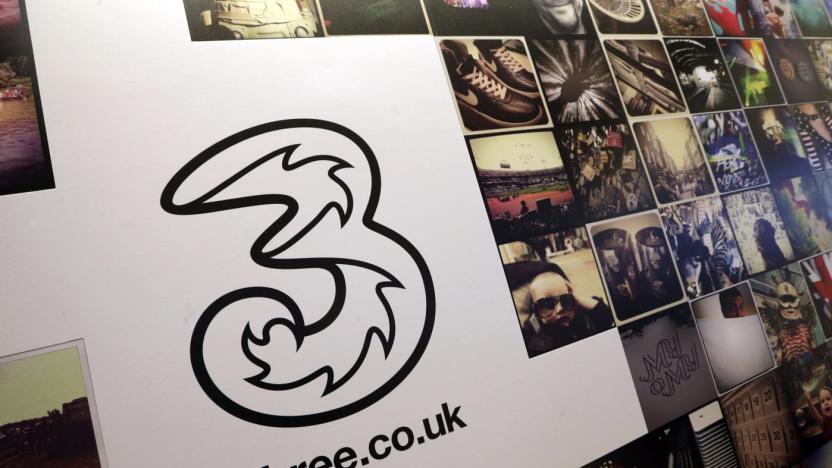
European regulators block Three and O2 merger
We suspected it was coming, but the European Commission has finally come out and said it: Three UK owner Hutchison Whampoa cannot buy UK carrier O2. In a statement, the Commission said that a potential merger between Three and O2 would have "reduced competition" and "resulted in higher prices," which may have negatively impacted the quality of service for UK consumers.

UK competition watchdog slams Three and O2 merger
The UK's competition watchdog has called on the European Commission to block a proposed acquisition of Telefonica UK, which runs O2, by Hutchison Whampoa, the company behind Three UK, unless both companies agree to a series of strong concessions. In a letter, Alex Chisholm, CEO for the Competition and Markets Authority (CMA), says he will only approve if Hutchison Whampoa agrees to sell Three or O2 after the acquisition. Such a move is the only way, he argues, to retain adequate competition in the UK mobile industry. If this isn't possible, Chisholm suggests breaking off one of the networks and facilitating smaller sell-offs. "Absent such structural remedies, the only option available to the Commission is prohibition."
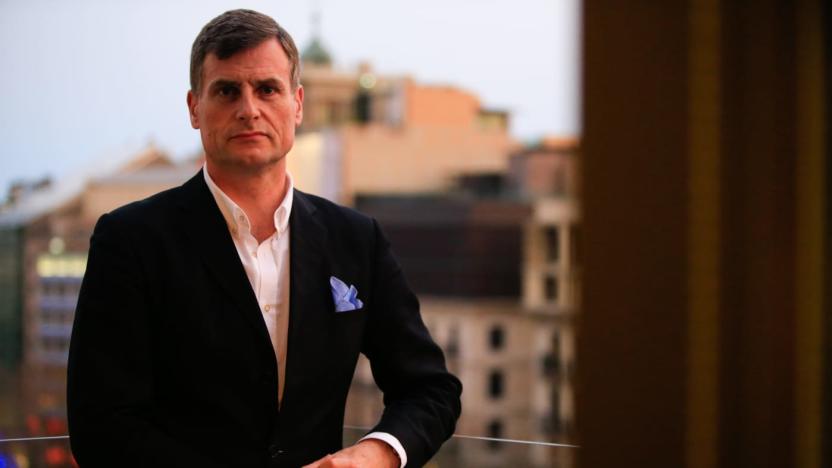
O2 CEO says blocking mobile ads isn't 'the answer'
Just a few days after Three announced it was going to block mobile ads at the network level, O2's CEO, Ronan Dunne, has spoken out against the practice. In an interview with Campaign at MWC, Dunne criticized pop-ups and other "intrusive forms of advertising" but added that grand-scale blocking wasn't "the answer." It's a slightly different tune than O2 was humming late last year. Days after EE said it was considering ad blockers on its network, O2's MD of digital commerce made it clear that the carrier was in the advanced stages of assessing the technology itself, and was even testing it with some customers.

O2 data bolt-ons now rollover into next month's allowance
iD is a mobile provider after our own heart. With all-you-can-eat data plans a distant memory, the Carphone Warehouse-owned MVNO has introduced the next best thing: rollover data. And better yet, there's no fine print. If you don't hit your monthly cap, any unused data will simply be added to next month's allowance. But O2 can't just sit by and let iD have its 15 minutes now, can it? Today, O2 announced its own rollover scheme, though it only applies to data bolt-ons you've purchased after exhausting your monthly allowance.
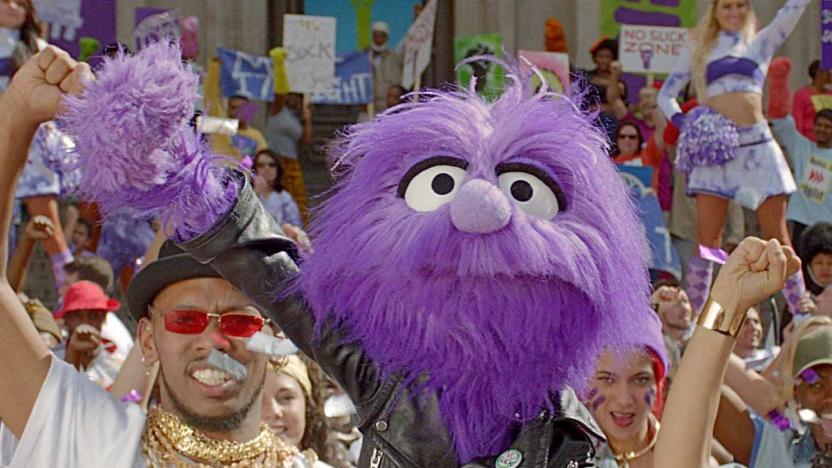
Three vows to fix prices to ensure O2 merger is approved
The proposed merger of UK carriers Three and O2 is far from a done deal. The European Commission, which is conducting the official review, telecoms regulator Ofcom and the UK's Competition and Markets Authority (CMA) have all voiced similar concerns: the union will have a significant and likely negative impact on competition in the mobile space. With the merger under threat, Chairman of Three UK Canning Fok has now made a number of promises to grease the wheels, including a five-year freeze on the price of minutes, texts and megabytes across both networks if the deal is approved.

BT gets the green light to buy EE for £12.5 billion
In the 11 months since BT confirmed it was buying EE, the UK's biggest carrier, the two companies have waited on the approval of regulators that need to make sure their union won't stifle competition. It took almost eight months for the Competition & Markets Authority (CMA) to provisionally give the deal the thumbs-up, but today BT has finally received the final rubber stamp it has been craving. In its investigation, the CMA looked at potential issues raised by rivals, which included TalkTalk, Vodafone and other major UK providers. It believes they would "not result in a substantial lessening of competition" in any of the markets that BT and EE operate in, including retail mobile, wholesale mobile, mobile backhaul, wholesale broadband and retail broadband services.
![[Image credit: Shutterstock]](https://s.yimg.com/uu/api/res/1.2/VpmJ6PlQRRCD8cPWHEBUdA--~B/Zmk9ZmlsbDtoPTQ2ODtweW9mZj0wO3c9ODMyO2FwcGlkPXl0YWNoeW9u/https://o.aolcdn.com/hss/storage/midas/49116fbd89e55352e0fdc212210c4b5f/203142547/stock-photo-young-girl-in-a-fashionable-sweater-sitting-in-a-cafe-with-a-cup-of-coffee-and-read-messages-on-269314832.jpg.cf.jpg)
UK carriers say draft snooping law will be a technical feat
Key to the draft Investigatory Powers Bill is a proposal that would require internet and other communications providers to collect and store 12 months of web traffic data, so it can be made available to government agencies when needed. It's a subject of ongoing debate in Parliament, and just last week, the UK's major ISPs voiced their concerns over the cost and technical challenges associated with gathering and processing these Internet Connection Records (ICRs). Yesterday, it was the turn of execs from EE, Three, O2 and Vodafone to meet with the draft bill's joint committee, and while the big four carriers echoed the sentiments of the ISPs, they are even more wary of the scale and scope of what the government is asking them to deliver.

O2 also considers blocking phone ads
More than one UK network is weighing up whether to offer its customers mobile ad-blocking tools. After EE stepped forward over the weekend, O2 is doing the same through an interview with Business Insider. Robert Franks, managing director of digital commerce at O2, says the carrier is "absolutely" looking at the practice. "When I say we are looking at these technologies, we are not just paying lip service to them," he explains. "We are absolutely having conversations which are well-advanced in terms of what that technology would do in our network...and how we would position this with customers."

Apple starts offering carrier billing for iTunes in Germany
Up until now, Apple's held out on offering carrier billing for services like iTunes and the App Store. But it looks like that's coming to an end, at least in Germany. As reported by TechCrunch, Apple seems to have quietly flipped the switch on this feature, which lets digital goods be charged directly to a phone bill, for people using O2's wireless network. A spokesperson for Telefonica, the owner of O2, confirmed to the publication it is in fact working with Apple on carrier billing. If you're an O2 wireless customer in that country, it means you can start charging Apple Music, iTunes, App Store and iBooks purchases directly to your monthly bill. Access is limited at the moment, but Telefonica says everyone on O2 will get it by the beginning of November.

Ofcom's spectrum licence fee increases: The carrier backlash begins
The UK's big four mobile providers -- EE, O2, Vodafone and Three -- woke up to a figurative punch in the gut this morning. Telecoms regulator Ofcom announced its final decision on increases to spectrum licence fees, and collectively, the carriers are looking at an annual bill of almost £200 million, compared with the £64.4 million they currently pay. The jump is said to realise the true financial worth of the mobile spectrum each provider licences; as the regulator puts it, spectrum "is a valuable and finite resource, and the new fees reflect that value." Ofcom's decision is set in stone, and mobile service providers have to come up with the money if they hope to continue, you know, providing mobile service. We can only speculate on how it'll play out, but you'd have to be incredibly optimistic to think consumers aren't going to be on the hook for at least some of the inflated bill. At this point, damage control and blame shifting are of primary importance to everyone involved. The backlash begins...

Bills could rise as Ofcom triples UK carriers' licence fees
After toying with the idea of quadrupling the amount providers must pay for mobile spectrum for almost two years, UK communications regulator Ofcom has finally arrived at a decision. It announced today that the big four -- EE, Vodafone, O2 and Three -- will now pay a total of £199.6 million annually for their allocations of the 900 MHz and 1800 MHz frequency bands, more than triple the £64.4 million they currently have to hand over.

O2's 'intelligent' network adjusts masts to boost your signal
Mobile network infrastructure isn't exactly an enthralling dinner-table topic, and yet somehow, O2's actually managed to make it sound interesting. The carrier's announced that it's switched on its new "self-optimising intelligent network," which responds to customers' needs in real-time. Apparently it's the first of its kind in the UK, but what makes it so smart exactly? Well, according to O2, the network constantly monitors mobile usage in any given area. When it notices demand catching up with supply, causing a decline in network quality, O2's mobile antennas are remotely repositioned to boost signal and bandwidth in response. Or, as the company puts it, the network "determines the best possible coverage and capacity parameters for all customers in a defined area."

Compare all UK networks with Ofcom's mobile coverage checker
Between price, data allowances and customer perks, there are plenty of things to consider when choosing a new mobile plan. But all of that research is moot if the carrier you end up choosing has poor coverage in your area. The four major providers -- EE, Three, O2 and Vodafone -- offer coverage maps to help inform your decision, but ever the people's champion, Ofcom's gone one better. Today, the telecoms regulator launched the "Mobile Coverage Checker," an online tool that pools data from all four carriers and some of its own intel to provide a comprehensive overview of signal strength across the UK. Simply whack in a postcode, and the tool will show you what level of 2G, 3G and 4G coverage you can expect, both indoors and outdoors, on any of the major networks. The map can apply to smaller MVNOs, too, provided you know what provider they're allied to. Ofcom is hoping users will also provide feedback on their local coverage to help improve the new tool, with an updated version slated for release this autumn.



